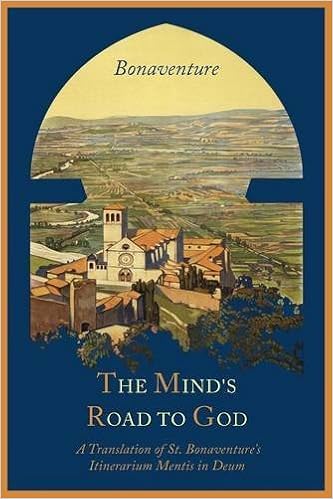

However, a preliminary question must first be despatched, namely that of the advance in Scheeben’s doctrine between the Natur und Gnade and the Dogmatik. They posit indeed two problems certainly fundamental in the psychology of faith: first, which is the intimate nature of that initial movement of the will toward God, and how is it produced? and secondly, how is the affective attachment of God, in which it culminates, organically united to the intellectual assent, its “completion”? Hence the purpose of the present chapter is to examine Scheeben’s contribution to an “easier solution” of these two problems. These two notions are interesting and suggestive, and deserve a more extended study.

This concrete idea includes two essential details, as we saw first, the notion that “the intimate attachment of the intellect to the divine knowledge presents itself as the completion of the soul’s upsurge to God, to which the childlike piety of the will impels it” and secondly, that this voluntary upsurge of the will is the “root” of faith. In the preceding chapter there was question, more or less incidentally, of the “concrete” idea of faith as an affective cognition that appears in the Dogmatik as the product of Scheeben’s more mature thought.

And as the manifestation of this desire in Francis’s dying body makes evident, for Bonaventure affectus plays at the boundary of body and spirit and names a force that is more fundamental than the distinction between the corporeal and incorporeal. In elaborating the soul’s natural motion to the good, moreover, Bonaventure situates divine desire within an Aristotelian cosmos. This dissertation argues that Bonaventure’s “affective" gloss on the Dionysian corpus was not an interpolation but a working out of the Dionysian conception of eros. This dissertation offers a new approach to the role of affect in Bonaventure’s theology through three lenses: his elaboration of the soul’s union with God as inspired by the writings of Dionysius the Areopagite Bonaventure’s conception of synderesis or the soul’s natural affective “weight” or inclination to God and the ecstatic death of the soul that Bonaventure describes in the Itinerarium mentis in Deum and which is witnessed in the body of St. In this ecstatic state, the boundaries between the soul and God-between active and passive, mover and moved, will and necessity-are effectivelyĬonsumed in the fire of union. Though Bonaventure does not use the language of the soul coming to nothing, he describes a state of ecstasy or excessus mentis that is possible in this life, but which constitutes the death and transformation of the soul in union with God. In drawing out this association, Bonaventure develops a theory of the soul and its capacity for transformation in union with God that gives specificity to the Christian desire for self-abandonment in God and the annihilation of the soul in union with God. But as this dissertation explores, the association of amor with fire played a precise and wide-ranging role in Bonaventure's understanding of the soul's motive power-its capacity to love and be united with God, especially as that capacity was demonstrated in an exemplary way through the spiritual ascent and death of St.

Abstract The image of love as a burning flame is so widespread in the history of Christian literature as to appear inevitable.


 0 kommentar(er)
0 kommentar(er)
